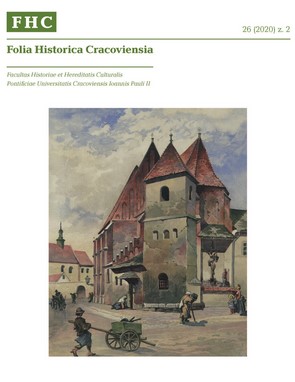Futile Efforts to Create an Arab Kingdom of Syria. From the Idea of Greater Syria to Syria Partitioned under the French Mandate (1915–1922)
Futile Efforts to Create an Arab Kingdom of Syria. From the Idea of Greater Syria to Syria Partitioned under the French Mandate (1915–1922)
Author(s): Krzysztof KościelniakSubject(s): Diplomatic history, Political history, Government/Political systems, International relations/trade, Nationalism Studies, Pre-WW I & WW I (1900 -1919), Interwar Period (1920 - 1939), The Ottoman Empire, Peace and Conflict Studies
Published by: Wydawnictwo Naukowe Uniwersytetu Papieskiego Jana Pawła II w Krakowie
Keywords: Syria; Greater Syria; French mandate for Syria and Lebanon; Kingdom of Hejaz; First World War; King-Crane Commission; Ottoman jihad; Arab nationalism; Sykes-Picot Agreement; Arab Revolt; Arabism;
Summary/Abstract: The text presents the dynamics and variability of the political options and alliances which shaped the borders of modern Syria in the most crucial period of World War I and the first years of post-war reality in the Middle East. The researchers show how the external interests of the Great Powers took priority over the Syrians’ internal affairs. For the inhabitants of the Levant, it meant the Western practice of ignoring Arab opinions and aspirations in the aftermath of the Great War, which was sealed in the Treaty of Versailles. Despite the positive solutions proposed by The King-Crane Commission (1919), the new post-Ottoman order ignored local identities and political preferences. The new borders were created artificially and determined arbitrarily. The Sykes-Picot agreement reinforced both conspiracy theories in the Middle East and the mythology of the Great Arab Revolt. The competing Western powers took advantage of the local minorities, fueling dislike and strengthening sectarianism. In the years 1919–1920, Pan-Syrianism solidified and took a characteristic form of striving to consolidate the fragmented nation of the Greater Syria. The resolutions of the General Syrian Congress of 2 July 1919 provided timeless premises for the political orientation of the Syrian nationalists, which strongly influenced politics in the Middle East in the following decades. However, the partition of Greater Syria after World War I proved to be one of the worst of many political traumas experienced in the Middle East at that time. Pan-Syrianism was systematically weakened by the conflicting aspirations among the Syrians, the Lebanese, the Palestinians, and Jordanians.
Journal: Folia Historica Cracoviensia
- Issue Year: 26/2020
- Issue No: 2
- Page Range: 195-250
- Page Count: 56
- Language: English

